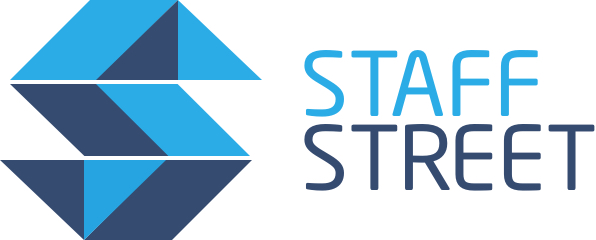With vaccines rolling out steadily, things are definitely looking more hopeful in 2021. However, there’s still a lot of work to be done before everything levels back to something normal. For many, remote work will remain a way of life. There’s plenty of reasons to expect it will continue that way even after the global pandemic has broken. A survey by Gartner shows that nearly two-thirds of companies are planning a permanent shift to remote work. Remote work has proven to raise productivity, lower costs on rent and office space, and promote agility and adaptability through tough times. Last year was a period of major adjustments on the parts of both employees and employers.
Here are the valuable lessons we learned from working from home in 2020.
Lesson One: We’re definitely more productive.
One of the most significant lessons we learned was how surprisingly productive it was to work from home. People are able to focus more on the work that they have to do. According to a study by Julian Birkinshaw, Jordan Cohen, and Pawel Stach, productivity is linked to the dramatic change in environment.
- At home, people are less likely to be pulled into distracting errands or meetings. Instead, they’re more likely to spend time interacting with customers and partners.
- People are learning to use their time more wisely. Left on their own, they’re able to identify clearly what to prioritize.
In addition, remote work improves employee wellbeing by allowing them to balance their lives better. Also, they’re not subjected to the stress of commuting. They’re able to save more money and make better choices when it comes to where and how they want to work. The last part is especially helpful in bringing in more inclusivity. Companies are not confined to hiring within the local talent pool. They can hire experts from different locations and different backgrounds, and inject a well-needed diversity to the team.

Alex Bayer, the CEO and Founder of Genius Juice says that remote work has contributed to their team’s wellbeing. The small and mighty team of Genius Juice has been working remote even before COVID-19 hit. Nothing much changed in 2020, but it gave everyone a broader appreciation for why it works.
“It allowed our employees to have more time at home, more time with their loved ones, more flexibility, and more time taking care of themselves. They have more freedom,” explained Bayer.
“They’re happier and more productive. I think our company culture has only strengthened and grown.
Lesson Two: But we still need to work on company culture and innovation
Towards the end of 2020, companies reported that despite the rise in productivity, there was a concurrent decline in innovation. According to the World Economic Forum, companies are less likely to invest in new things during times of uncertain risk. Moreover, with a lot more people working from home, there’s just a lot less collaboration.
In the office, the flow of ideas is not streamlined. Great ideas can come out of incidental conversations in the hallway, during lunch breaks, or at after work gatherings. While reduced interactions outside of official tasks and business has certainly led to an increase in productivity, it has also led to a significant dip in the circumstances that engender innovation.
Wharton Professor Michael Parke told Forbes that innovation relies on the relationship between colleagues and peers, and part of what shapes that is the work environment. That isn’t to say that companies can’t improve innovation with a remote work set-up. Managers and company leaders just have to be more conscious and deliberate in enabling relationships within the company, and thus, creativity and innovation, to foster.
According to Aviv Ben-Yosef, a consultant to tech executives, companies should keep communication open and encourage honest suggestions and feedback.

Lesson Three: Creativity requires proactivity
August Birch broke down Jim Collins’ work on creativity. Collins believes that creative work is cumulative work. That is, it’s not something that happens spontaneously. It takes discipline, day in and day out, making a habit of building your craft.
“Whether it’s writing, math problems, product development, coding, sketching, photography, or idea-mapping, creative work is the doing side of the equation,” Birch said.
Brich noted that Collins dedicated at least three hours of his day making sure that he was able to create something. It not only helped him build a great body of work. But it also improved his mental health.
And when it comes to remote work, mental health is crucial.
Far too many people are feeling burnt out from remote work for different reasons. The lack of working space at home. The overlapping use of technology for both work and leisure. And the challenge of balancing professional and domestic work, especially for people living with young children. Some CEOs don’t see this necessarily as a problem.

For a small emerging brand like recoup, CEO and co-founder Susan Buckwalter says that remote work has broken down the walls between the people that she and co-founder Siwat Siengsanaoh work with.
“I think, just being able to see into each other’s apartments, see our pets and our families and all of those things just takes away any of that screen or that wall. And I think it’s a good thing and it allows you to get to know people at a deeper level,”
Getting an insight on everyone’s home situation could help managers understand how to help their employees to be more proactive. Not only does this help employee wellbeing, but it also helps the company’s ability to innovate.
They can help their employees create the space or build the routine that will help them take care of themselves, and energize their creative impulses. cSupportive structures should match incentives. Employers should give employees some flexibility in creating a routine or schedule that’s more responsive to their situation at home.
Lesson Four: Technology is a game-changer, but it is not the answer to everything
Technology has been central to the survival and adjustment of businesses during the pandemic. With many shifting to work from home arrangenments, people relied heavily platforms like Slack and Skype to manage their communication and keep people working together. The pandemic has also given companies the opportunity to rethink the way that they measure productivity and performance. Companies are realizing the inefficiencies of previous yardsticks, and are starting to figure out newer and more substantial ways to help employees manage and full their responsibilities and roles.
Technology has been central to that transformation, but technology alone is not the answer. There are certain aspects of a business that takes more than just integrating an app to improve the process. Take, for example, marketing and online engagement.

Lesson Five: Compartmentalize
One of the most important things we learned in 2020 is to compartmentalize a working home space.
When you have to work where you sleep, eat, and relax, it can feel overwhelming. For employees who live with their families, it can be downright stressful. Working from home means employees are taking the work environment with them, including the responsibilities and the professional atmosphere. At the same time, carving out a space at home for work is a huge adjustment. Employers need to be mindful of their employees’ home situation.
Ideally, employees should be encouraged to create a working space at home. Time to stop working from the dining table or from the bed. A dedicated workspace goes a long way in providing professional and functional areas for work, while also maintaining the sanctity of a home. Employers and managers need to identify the ways they can provide employees supporting structures, whether that’s in helping pay or their electricity bills, or helping them set up a workstation.

As the world continues to move down the path of remote work, company culture is only going to matter even more.
recoup CEO and co-founder Susan Buckwalter says, “I think the companies that will thrive are the ones that recognize people’s humanity and celebrate that and appreciate that. And those are the type of cultures that will be more appealing moving forward.”
COVID-19 and 2020 has underscored the importance of working together and the power of imagination. If companies and businesses plan to bring more resilience to their operations in 2021, it’s vital that they acknowledge the challenges ahead and make the most of working from home.

